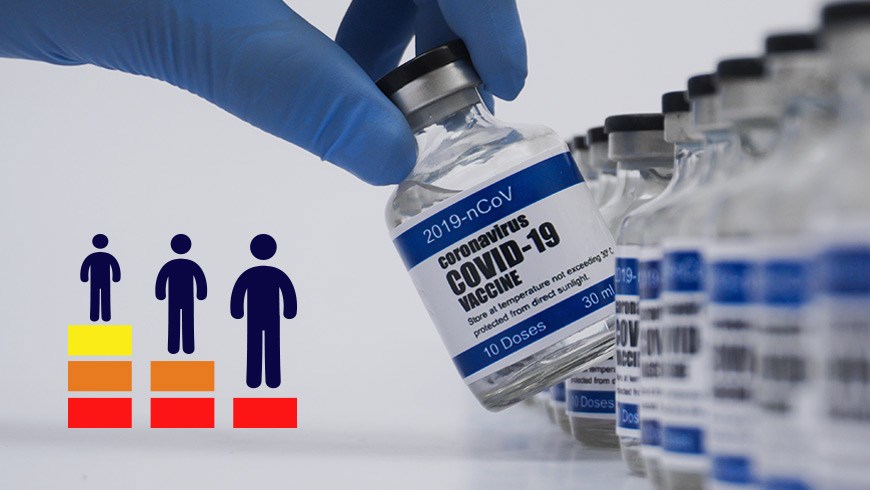Covid vaccine figures expose global inequality
Only one in seven people in low-income countries are fully vaccinated as the poorest are pushed to the ‘back of the queue’.
-

Covid vaccine figures reveal global inequality.
The international objective of vaccinating 70% of the world's population against Covid by mid-2022 was missed because poorer countries were at the "back of the queue" when vaccines were rolled out, according to campaigners.
According to the most recent Our World in Data data, there are large disparities in vaccination rates around the world, with only one in every seven persons in low-income nations fully vaccinated. In comparison, roughly three out of every four people in high-income countries have been immunized for about a year.
Activists are calling for a renewed push to increase vaccine uptake globally in order to slow the virus' spread and prevent future variants. Their demand comes as the World Health Organization reported this week that Covid infections in Europe have risen and hospitalizations have doubled in the last six weeks, with 3,000 deaths recorded every week.
Vaccine distribution has been uneven. According to Bloomberg, countries with the highest incomes are getting vaccinated more than 20 times faster than those with the lowest.#COVID19 #vaccine pic.twitter.com/nDc52P7CTa
— Al Mayadeen English (@MayadeenEnglish) September 28, 2021
“Unless we achieve equitable action in addressing this pandemic, it will always remain with us in the world,” said Kavengo Matundu, Africa coordinator for the Global Call to Action Against Poverty (GCAP), who has been working on the Covid response with frontline groups.“It has shown that it is capable of mutating into anything, and can become something more dangerous than the original.”
Read next: Covid rises across US amid muted warnings, lack of data
When the first vaccines were distributed globally in 2020, low-income countries had to wait months for doses from the Covax vaccine-sharing scheme or other contributors. Wealthy countries had purchased the vast majority of available vaccines.
Upon arrival, vaccination doses were either expired or insufficient to meet the needs of health centers. This made people frustrated and hesitant to return to vaccination facilities, according to Maaza Seyoum, Global South convenor of the People's Vaccine Alliance.
Vaccine effectivity in question
The introduction of new varieties, particularly the Delta wave, which resulted in significant death rates in several countries, contributed to some believing that the vaccines were ineffective. “As much as there’s all this naive and hopeful talk when push comes to shove, we cannot count on rich countries to do the right thing,” said Seyoum.
“The poorest countries in the world have ended up at the back of the queue, creating the sense that some lives matter more than others.”
Read next: US wasted over 82 million COVID-19 vaccine units
“The pandemic, and the economic issues that have come with it – some of the data we’ve seen shows that 100 million more people have been pushed into poverty by this pandemic – make it difficult when you’re asking people in that environment to take out a huge amount of time from their money-making to stand in line for a vaccine," she added.
“We have to imagine what we would feel like if we were trying to access a service that we were told was delayed over and over.”
Our World in Data data revealed that only 15.8% of people in low-income nations were fully vaccinated as of 10 July, compared to 55% in lower-middle income countries, 73.5% in high-income countries, and 78.7% in upper-middle-income countries.
Read next: WHO to Stop “Shameful Inequity” in Vaccine Distribution

 3 Min Read
3 Min Read








